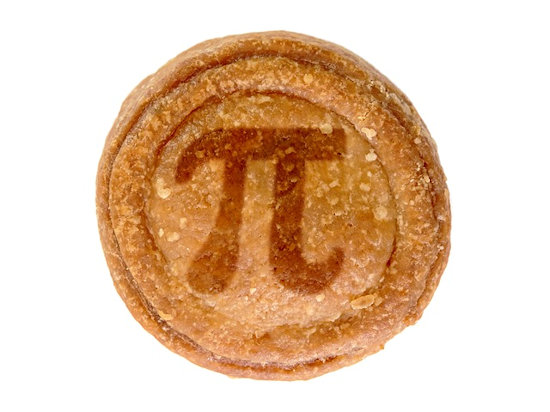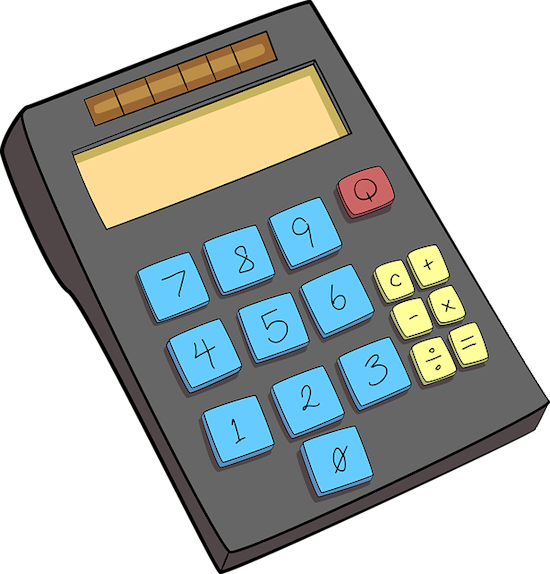
You already know the GRE Quantitative section is all about math. But how high of a score do you truly need to do well on it? And what’s a good GRE Quantitative score for the grad programs you’re applying to?
In this article, we’ll go over the basics of GRE scoring and what’s considered a good Quantitative score. We’ll then take an in-depth look at how you can set, as well as achieve, your ideal GRE Quantitative score.
What Is a Good GRE Math Score Overall?
A good GRE Quant score varies depending on the test taker, so, really, there isn’t any definitive answer to this question. Ultimately, a good GRE Quant score is the score that’ll give you the best chance at getting into the programs you’re applying to. In other words, a good Quant score for you could be as high as 168 or something lower like 153.
But many programs like to know how their applicants compare with one another, especially when it comes to standardized tests. And they can make these comparisons by using GRE Quantitative percentiles.
Before we jump into percentiles, though, let’s take a moment to review the scoring system. The GRE Quant section is scored on a scale of 130-170 in 1-point increments. On this scale, 170 is the highest possible score and 130 is the lowest.
Because very few test takers score as low as 130 or as high as 170, a majority of scores fall somewhere in the middle. At present, the average GRE Quant score is 152.57. For some schools an average GRE Quant score is sufficient, but for others 152-153 is considerably low (we’ll cover this more in the following section).
GRE math percentiles indicate what percentage of test takers you scored higher than on Quant. The higher your score, the higher your GRE Quantitative percentile. For example, a 90th percentile Quant score means you scored higher than 90 percent of test takers — a notable achievement! A 10th percentile Quant score, on the other hand, places you in the bottom 10 percent of test takers.
Quick side note: we've created the world's leading online GRE prep program that adapts to you and your strengths and weaknesses. Not sure what to study? Confused by how to improve your score? We give you minute by minute guide.
You don't NEED a prep program to get a great GRE score. But we believe PrepScholar is the best GRE prep program available right now, especially if you find it hard to organize your study schedule and don't know what to study.
Click here to learn how you can improve your GRE score by 7 points, guaranteed.
Here is a brief overview of GRE math percentiles and their corresponding scores:
| Quant Score | Percentile |
| 130 | — |
| 135 | 2 |
| 140 | 8 |
| 145 | 20 |
| 150 | 38 |
| 155 | 59 |
| 160 | 76 |
| 165 | 89 |
| 170 | 97 |
Source: ETS GRE Interpretive Data Table 1A
According to this data, the top 24 percent of test takers scored 160 or higher (most competitive), while the bottom 24 percent scored 146 or lower (least competitive).
Interestingly, a perfect score for GRE Quant falls in the 97th percentile — not the 99th percentile as it does for Verbal and other standardized tests such as the SAT. What this means is that more people score perfect scores on Quant than they do on Verbal.
In other words, percentiles for each possible score are lower for Quant than they are for Verbal, making Quant a more competitive section. For instance, a 96th percentile score is only 165 for Verbal but 169 for Quant, meaning you have to score higher on Quant if you wish to hit a certain percentile.
Typically, more selective programs prefer applicants with Quant scores in at least the 85th percentile (163+). But not all programs — and, likewise, not all fields of study — look for the same types of scores. So how can you go about figuring out what a good Quant score is for you personally?

What Is a Good GRE Quantitative Score for YOU?
As I’ve (hopefully) already made clear, a good GRE Quantitative score isn’t defined exclusively by what percentile you’re in. Rather, a good GRE Quantitative score is one that’ll help you gain admission to the programs you wish to attend.
We can determine what kind of score you’ll need by looking at three major factors: your field of study, the programs you’re interested in, and your degree type.
#1: Your Field of Study
Generally, programs in math-heavy fields, such as engineering and science, value Quant scores the most (and don’t pay as much attention to Verbal scores). By contrast, programs in non-math fields, such as the arts and humanities, value Quant scores the least.
Basically, what constitutes a good Quant score can vary greatly by intended field of study.
The following chart depicts the average GRE Quant scores of applicants by discipline:
| Discipline | Average Quant Score | Percentile |
| Life Sciences | 151 | 43 |
| Physical Sciences | 158 | 69 |
| Engineering | 159 | 73 |
| Social and Behavioral Sciences | 151 | 43 |
| Arts and Humanities | 150 | 38 |
| Education | 149 | 35 |
| Business | 153 | 51 |
Sources: ETS GRE Distribution Table 4 and ETS GRE Interpretive Data Table 1A
Before we dive headfirst into data analysis, note that these scores are the average scores of test takers, not admitted applicants. In reality, we don’t know whether these scores were high enough to secure admission to grad school. What we do know, however, is that most test takers in these fields scored close to these averages.
Got it? Onto our analysis now.
According to this table, the average GRE Quant score by intended graduate field ranges from 149 to 159, or the 35th to 73rd percentiles. That’s a big 38 percent difference!
As expected, engineering and physical sciences applicants achieved the highest average GRE Quant scores (159 and 158, respectively), whereas education and arts and humanities applicants exhibited the lowest average Quant scores (149 and 150, respectively).
This trend doesn’t mean that all engineering applicants scored higher than all arts and humanities applicants, though. Rather, it simply suggests that test takers typically score higher on the GRE section more relevant to their intended field of study.
Additionally, this data doesn’t indicate what Quant scores give test takers the best chance of admission to their specific programs. Many engineering programs, for example, expect Quant scores well above the field’s average of 159, whereas others are OK with scores below 159. Similarly, certain arts and humanities programs might look for high Quant scores, even if math is mostly irrelevant to the field.
In brief, what constitutes a good GRE Quant score depends not only on your field but also on the programs you’re interested in.

#2: The Programs You’re Interested In
Good GRE math scores vary by program as much as they do by field. Most of the time, GRE expectations correlate to the overall competitiveness of a program or school. The more competitive a program is (especially one in a math-heavy field), the higher your Quant score should be.
Let’s look at some examples. In 2017, admitted applicants to Stanford’s Master of Science in Management Science & Engineering program had an average GRE math score of 167 (92nd percentile). As for the University of Iowa’s grad program in statistics and actuarial science, all applicants boasted a similarly high 166 Quant average (91st percentile). Both of these averages exceed the average GRE math scores for the engineering and physical sciences fields.
But what about less competitive math-heavy programs? Or programs in non-math fields? As you can guess, these types of programs don’t anticipate high GRE math scores. The Master of Science in Computer Science program at UT Dallas recommends a Quant score of 155 (59th percentile) — a little lower than the field’s 62nd percentile average — while Georgia State University’s Master of Arts in Communications program suggests a minimum Quant score of only 144 (17th percentile)!
As we can see, the programs you choose, as well as your discipline, play a major role in how high your Quant score should be for you to be considered a competitive applicant. Generally speaking, competitive math-heavy programs look for some of the highest Quant scores, while less competitive non-math programs accept some of the lowest Quant scores (but likely expect higher Verbal scores).
Occasionally, extremely competitive programs might prefer applicants with high scores on both Quant and Verbal. One example is the University of Chicago’s philosophy program, whose admitted students boasted an average 167 Verbal score (98th percentile) and an average 158 Quant score (69th percentile). Such a Quant score is a lot higher than the 38th percentile average (150) for the arts and humanities!
(Side note: Those 700s you see on the University of Chicago website are averages based on the old GRE scoring system. If you ever come across these while doing research on your own programs, simply convert the old scores to new scores using our handy GRE conversion charts.)
#3: Your Degree Type
In addition to discipline and program, the type of degree you seek can affect how high of a GRE math score you should be aiming for.
Generally speaking, doctoral programs expect higher Quant scores than master’s programs. This is likely a result of the demanding nature of doctoral programs and the expectation that applicants have already obtained a master’s degree. (Not all doctoral programs, however, require applicants to have master’s degrees.)
Admitted master’s applicants to Clemson University’s biological sciences program, for example, had a median GRE math score of 153 (51st percentile), while admitted doctoral applicants had a higher median GRE math score of 156 (62nd percentile).
At some schools, however, GRE score expectations are the same for both master’s and doctoral applicants. Applicants to Georgia Tech’s master’s and PhD programs in electrical and computer engineering entered with a combined average Quant score of 164 (87th percentile).
Additionally, sometimes doctoral students average lower Quant scores than master’s students. One example of this is Duke’s civil and environmental engineering program, for which incoming master’s students averaged 169 (96th percentile) on Quant, and PhD students averaged a much lower 162 (81st percentile).
Want to improve your GRE score by 7 points? We have the industry's leading GRE prep program. Built by world-class instructors with 99th percentile GRE scores, the program learns your strengths and weaknesses through machine learning data science, then customizes your prep program to you so you get the most effective prep possible.
Try our 5-day full access trial for free:
So far, we’ve gone over all of the different factors that go into defining a good Quant score. Now, I ask you this: how can you use this info to figure out a good Quant score for you?

How to Set a GRE Quantitative Goal Score
By now you’ve got a pretty clear idea as to what constitutes a good GRE Quantitative score. The next step is to determine your Quant goal score. This is the score that’ll make you a competitive applicant for your programs.
Follow the three steps below to set your goal score today.
Step 1: Make a Chart
Charts are incredibly useful for aggregating GRE score info and drawing quick program comparisons. Plus, they’re a cinch to make!
Your chart should contain three major categories:
- Your school name
- What they say about GRE scores
- The Quant score each school wants you to have
Let’s get hypothetical. Emma is applying for a PhD in astronomy but doesn’t know what Quant score she should aim for. Here’s how she’d begin filling out her chart:
| School | What They Say | Quant Score |
| University of Southern California | ||
| University of Denver | ||
| University of Nebraska-Lincoln | ||
| University of North Carolina at Chapel Hill |
Step 2: Look for GRE Score Info
The next step is to go online and search for specific GRE score info for your programs. The easiest way to do this is by either exploring your schools’ websites directly or searching “[Your School] [Your Program] GRE scores” on Google.
If a program does offer GRE score info, it’ll usually be reported in one of three ways:
- Average scores: These are the average scores of admitted applicants.
- Recommended scores: These are the scores programs recommend you attain, at a minimum, in order to be looked upon favorably for admission.
- Required minimum scores: These are the minimum scores required to be considered for admission (either to the program or the overall graduate school). Anything lower than these scores will usually disqualify your application.
Unfortunately, not all schools list GRE score info online. If you can’t find any concrete GRE score info on your schools’ websites, consider skimming forums on The Grad Cafe or Reddit. You can also call your schools directly to ask about GRE scores and how important they are during the admission process.
Back to our example: Emma discovers that USC requires a minimum Quant score of 163 to be considered a competitive applicant. She continues her research and uncovers GRE score info for her other schools as well. According to her findings, the University of Denver requires an absolute minimum Quant score of 146, while UNL recommends a Quant score greater than 158.
She records all of this info in her chart:
| School | What They Say | Quant Score |
| University of Southern California | Minimum Quant score 163 to be competitive | 163 |
| University of Denver | Required minimum Quant score 146 | 146 |
| University of Nebraska-Lincoln | Recommended Quant score >158 | 158 |
| University of North Carolina at Chapel Hill |
Almost finished! But then Emma comes across a somewhat vague passage on UNC’s webpage for its physics and astronomy department: “For reference, recently enrolled students have had GRE scores in the following percentile ranges: Verbal 41%–99%, Quantitative 71%–98%, and Physics 14%–91%.”
Obviously, no GRE scores are listed — but Emma can translate the GRE Quantitative percentile range to a score range using ETS GRE percentile data (which is also recorded in the GRE math percentile chart at the beginning of this article). According to this data, a Quant score in the 71st percentile is roughly equivalent to a score of 158-159, and a Quant score in the 98th percentile equals a perfect score of 170; thus, we have a Quant score range of 158-170 for UNC.
But Emma can go one step further by taking the average of this range: (158 + 170) / 2 = an average score of 164 for admitted students.
She records this final piece of info in her chart:
| School | What They Say | Quant Score |
| University of Southern California | Minimum Quant score 163 to be competitive | 163 |
| University of Denver | Required minimum Quant score 146 | 146 |
| University of Nebraska-Lincoln | Recommended Quant score >158 | 158 |
| University of North Carolina at Chapel Hill | Admitted students’ Quant score percentiles: 71 (158) to 98 (170) | 164 |

Step 3: Determine Your Goal Score
You’ve got all of your GRE score info collected and organized. Well done! Now, how do you use what you’ve found to figure out your GRE Quant goal score?
First, look at the scores in your chart and identify the highest score. For Emma, that’s 164:
| School | What They Say | Quant Score |
| University of Southern California | Minimum Quant score 163 to be competitive | 163 |
| University of Denver | Required minimum Quant score 146 | 146 |
| University of Nebraska-Lincoln | Recommended Quant score >158 | 158 |
| University of North Carolina at Chapel Hill | Admitted students’ Quant score percentiles: 71 (158) to 98 (170) | 164 |
Next, add 2 points to this score to get your GRE Quant goal score.
Emma’s goal score is 166 (91st percentile). Reaching this score will give Emma an excellent shot at getting accepted to all of the PhD programs she’s applying to.
Your GRE Quant goal score might be the same as Emma’s, or it might be significantly higher or lower. No matter the number, all Quant goal scores serve the same purpose: to boost your competitive edge for the specific programs you’re applying to.
In some cases, you might want to lower your goal score by a couple of points if it’s extremely hard to get. Although doing so will decrease your chance of getting into your toughest school, such a score should still be competitive enough for your other programs.
But what if you do reach your Quant goal score — and perform poorly on Verbal?
An Aside: What If My GRE Quant Score Is High But My Verbal Score Is Low?
We’ve already touched on this a bit in previous sections, but, just to reiterate, the significance of Quant and Verbal scores is highly dependent on your discipline and program.
If you’re an aspiring engineer or mathematician with a high Quant score and a low Verbal score, it’s probably nothing to worry about. Perhaps not surprisingly, many math-heavy programs don’t even bother looking at your Verbal and AW scores anyway. As long as your Quant score is up to par, that’s generally the extent of your GRE analysis.
Likewise, many non-math programs care a lot about your Verbal score but very little about your Quant score, even if it’s relatively high. In the end, a high Quant score won’t make up for a poor Verbal score if you’re trying to enter a non-math field like the arts and humanities.
So is a high Quant score all you need to get into a math-heavy program? Not necessarily. More competitive schools, such as Harvard and Stanford, typically require high Quant scores in addition to high Verbal scores — even for technical fields like computer science.
Additionally, if you can’t find any GRE score info for programs that aren’t overly competitive, always try to aim for at least average on your less important GRE section. At the very least, it’s best to paint yourself as a well-rounded and balanced applicant!
Want to improve your GRE score by 7+ points?
Check out our best-in-class online GRE prep program. We guarantee your money back if you don't improve your GRE score by 7 points or more.
PrepScholar GRE is entirely online, and it customizes your prep program to your strengths and weaknesses. We also feature 2,000 practice questions, official practice tests, 150 hours of interactive lessons, and 1-on-1 scoring and feedback on your AWA essays.
Check out our 5-day free trial now:

How to Get a Good GRE Quantitative Score
Got a Quant goal score? Check! But how can you ensure you’ll actually reach your target score on test day
Choose the scenario that applies to you for specific tips on how to make your goal score a reality.
Scenario 1: You Haven’t Taken the GRE Yet
You’re registered for the GRE, or perhaps you’re still wondering how on earth you’re even supposed to register. (We’ve got the answer here!) The point is, you’re a GRE newbie who wants to do well on Quant — and we want you to, too. Here are some of our best tips for hitting your target score.
#1: Determine your baseline score. In other words, take a practice test! I suggest you use the free PowerPrep software by ETS and read our article on how to use official GRE practice tests. Once you know your baseline score for Quant, you can calculate how many points you’ll need to improve by in order to hit your goal score on test day.
#2: Concentrate on the section more relevant to your discipline. If you’re applying to an engineering, science, or math program, shift your focus to Quant. If you’re applying to a social sciences or arts and humanities program, commit to studying Verbal. Don’t ignore an entire section, but don’t put all of your energy into one that’s way less important than the other.
#3: Review your basic GRE math concepts. The GRE isn’t an AP calculus class; it’s pretty basic math, actually, the bulk of which you studied in middle school and high school. So don’t freak out — you’re not learning anything new! As long as you’re familiar with all GRE Quant topics and can recognize these problems on a test, you should be good to go.
#4: Study, study, study. Even if you’re ultra-confident in your math skills, don’t wing the GRE. Try to set aside ample study time during the months leading up to the test and always opt for premier study materials. If you’re not sure where (or when) to start, read our guide on how long you should study for the GRE.
#5: Take the GRE early. This way, if you perform poorly, you’ll have time to retake it. Take the GRE at least two to three months in advance of your application deadlines. If you’re still unsure about when to take the test, refer to our guide.

Scenario 2: You’ve Taken the GRE and Got a Low Quantitative Score
You took the GRE, but your Quant score just wasn’t up to par. Don’t beat yourself up about it; the GRE is a tricky test! (Trust me, I know.) Here’s how to hit your goal score on a second attempt as well as suggestions for what to do if your goal score is simply out of reach.
#1: Schedule a retake. If you took the test early enough (at least two months in advance of your application deadlines), you should have enough time to schedule a retake. Remember, you can take the GRE every 21 days, up to five times in any 365-day period.
#2: Pinpoint your weak spots. You didn’t do as well as you thought you would, so something is lacking in either your general math knowledge or test-taking skills. Figure out what types of questions were hardest for you and dedicate most of your study time to reviewing those topics. (Don’t spend too much time covering topics you’re already familiar with.) If you struggled with geometry, drill geometry problems. If you weren’t sure what to do with your scratch paper, identify the best methods for using it on test day.
#3: Strengthen your overall application. If you can’t retake the GRE or did but couldn’t hit your goal score, devote your energy to strengthening the rest of your application. This is also a perfect opportunity to write about your Quant score in your personal statement and explain why it isn’t as high as you’d like it to be — but why you’re worth admitting anyway.
What’s Next?
Hoping to ace the GRE Quant section? Then check out our detailed guide to getting a perfect 170 on Quant.
Ready to shift gears and focus on Verbal? Read about how to set a GRE Verbal goal score, and get expert tips on how to ace the GRE Verbal section.
We’ve also got tons of info on the GRE in general, including detailed looks at how the GRE is scored, what its percentiles mean for you, and how its average scores vary by discipline, gender, and ethnicity.
Ready to improve your GRE score by 7 points?
We've written a eBook about the top 5 strategies you must be using to have a shot at improving your GRE score.
Download it for free now:

